A tale of two environmental crises:
Climate anxiety plagues millions in Britain as COP26 faces criticism for missing mark on disability

Climate anxiety? COP26? What's it all about?
Climate anxiety is gripping millions as activists express discontent over the COP26 world climate summit in Glasgow, which ended on 13 November.
The UK's Office for National Statistics (ONS) revealed 43 percent of people in Great Britain felt very or somewhat anxious about the environment’s future in the month prior to a 6–17 October survey. Just 20 percent felt somewhat unanxious or not at all anxious.
The figures were released on 5 November as humanity watched on at COP26, the 26th annual UN Climate Change Conference. But the efforts world leaders made to prevent severe climate change by avoiding a global temperature rise of above 1.5C have not calmed everyone.
Extinction Rebellion (XR) activist Suzanne Savage, 54, a teacher training lecturer living in Worcestershire, was in Glasgow for the summit.
She said: "They’ve made a few improved pledges to pretend like they’re acting but those pledges are a plaster on a gaping wound and they’re not enough.
"And so, my rage and my lack of understanding of what they think is just growing by the moment.
"Do they not have children? Do they not have grandchildren? Do they not care about what they leave for future generations?
"The UK Government has botched what was an amazing opportunity to lead the world on climate."
Savage had travelled to London for the Rise and Rebel March, a protest organised by XR and other groups on COP26's final day. Participants demonstrated at the City of London's yearly Lord Mayor's Show procession over the Square Mile's alleged financial and legal involvement in climate change. However, many activists were more concerned with the climate summit.
Campaigners have been angered by fossil fuel lobbyists’ extensive presence at COP26 and the dialling down of a commitment on coal in the international deal reached there following Chinese and Indian objections.
Savage criticised Prime Minister Boris Johnson over his government's reported intention to authorise work on the Cambo oil field off Scotland while he calls for environmental action.
She said: "We have to stop fossil fuel funding right now."
On Cambo, the Government maintains: "Development proposals for oil fields under existing licences are a matter for the independent expert regulators. No decision has been taken yet."
Question and data: Office for National Statistics. Contains public sector information licensed under the Open Government Licence v3.0.
Suzanne Savage reveals the powerful emotions she feels about climate change and why she was at the Rise and Rebel March.
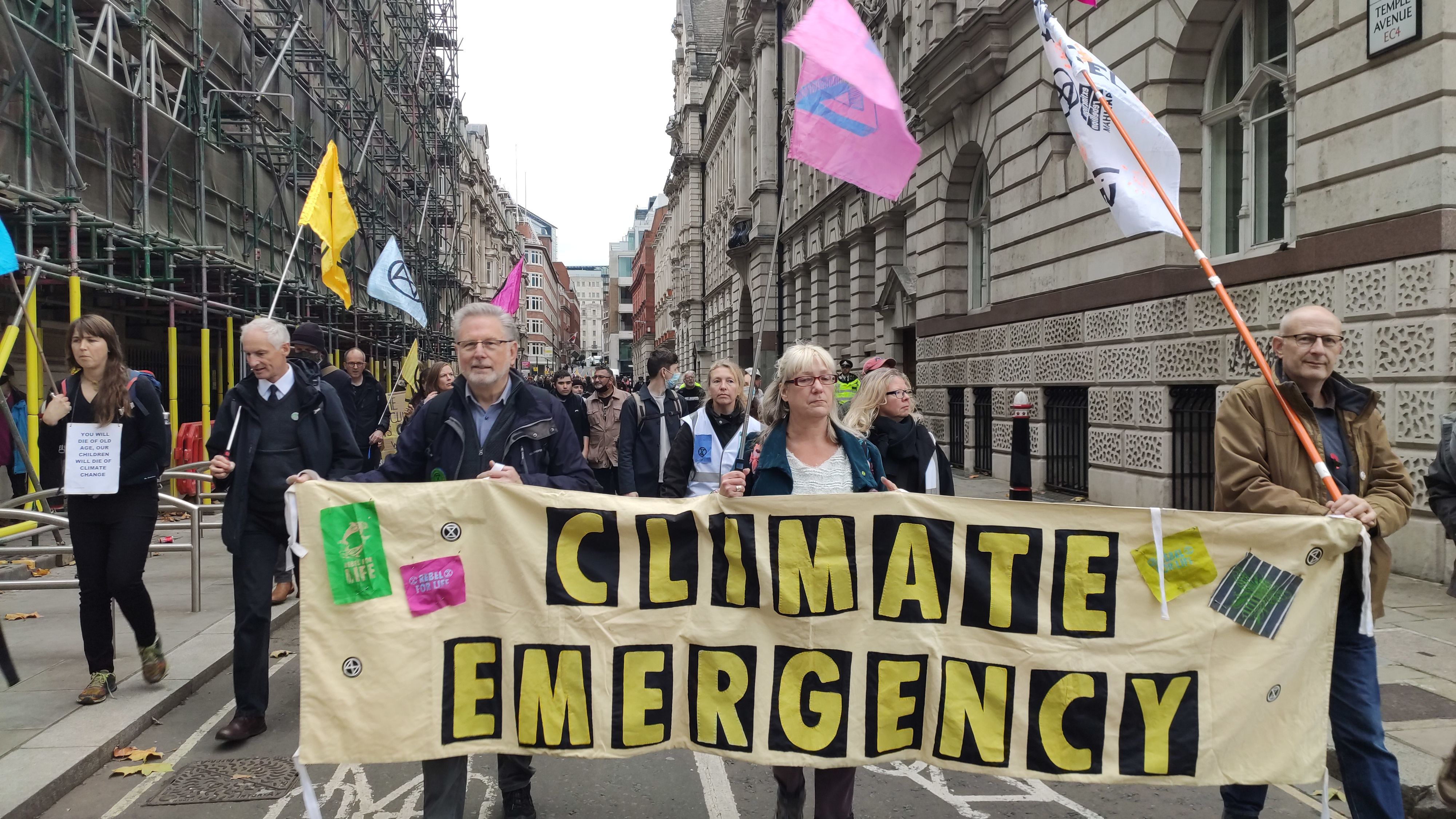
SOS: Rise and Rebel March protesters urged environmental action.
SOS: Rise and Rebel March protesters urged environmental action.
Laura Korte: COP26 and climate anxiety
"My whole future is a climate crisis."
Reflecting on COP26 the day after it finished, XR Kingston upon Thames’ Laura Korte, 26, said: "Smaller island nations, particularly, are saying, 'We're already drowning.'
"And us in the Global North, we're just like, 'Alright, but we want economic growth instead.'
"COP26 just highlighted how I can’t rely on my government. I can’t rely on the people in power.
"I can’t rely on those prime ministers and presidents flying in on private jets to Glasgow and trying to make decisions."
Korte, who also attended the Rise and Rebel March, is a teacher at a forest school, where children learn in nature.
She experiences climate anxiety, like 44 percent of those aged 25 to 34 in Britain, according to the ONS.
"Power to the people": the scenes at the Rise and Rebel March.
The Finnish activist said: "It makes me really anxious to think about a future where there isn’t food security, the refugee crisis is gonna get worse, and trying to think about how unjust the world’s gonna be.
"My whole future is a climate crisis."
Korte's anxiety was made worse by the heightened media attention around COP26, though she appreciates the awareness raised.
The summit itself, despite her criticisms, did not make her more anxious.
Korte said: "I knew when COP26 was happening that it wasn't going to be the, you know, saviour of our planet."
Is Earth more or less likely to avoid severe climate change given the results of #COP26? 🌎🌍🌏
— Nick McAlpin (@NickGMcAlpin) November 22, 2021
Ear to the Twittersphere: What did social media users think of COP26?
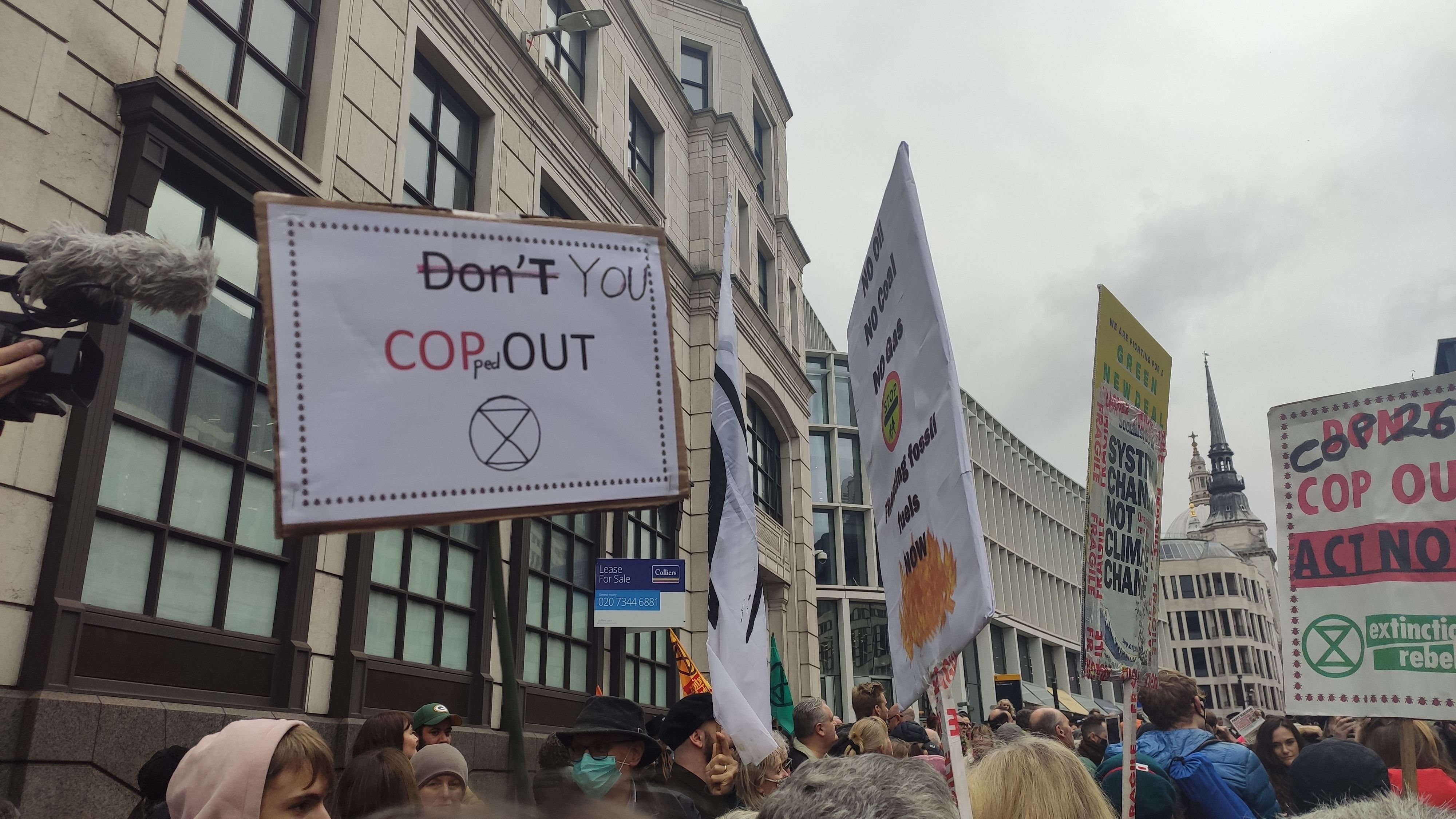
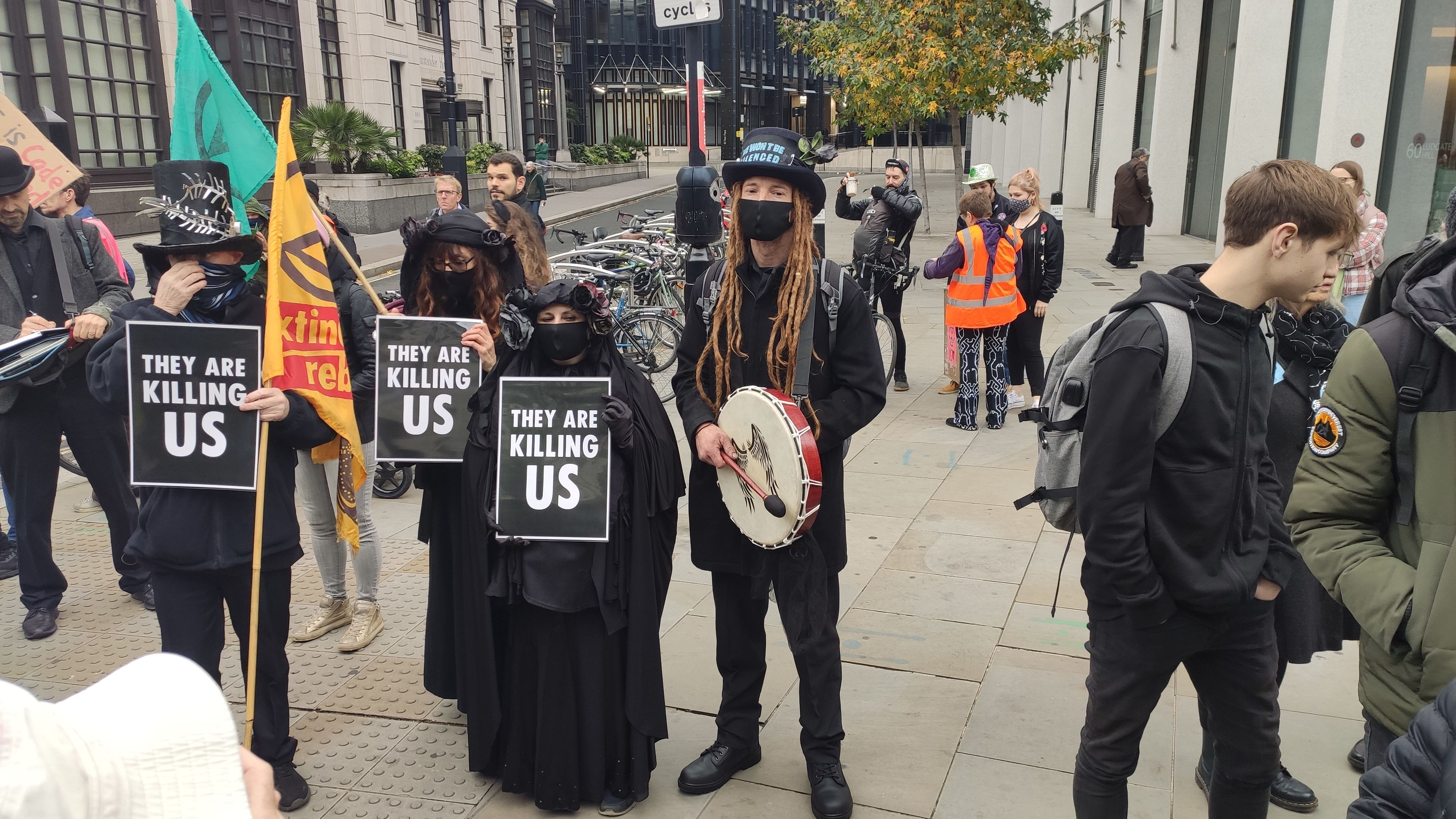
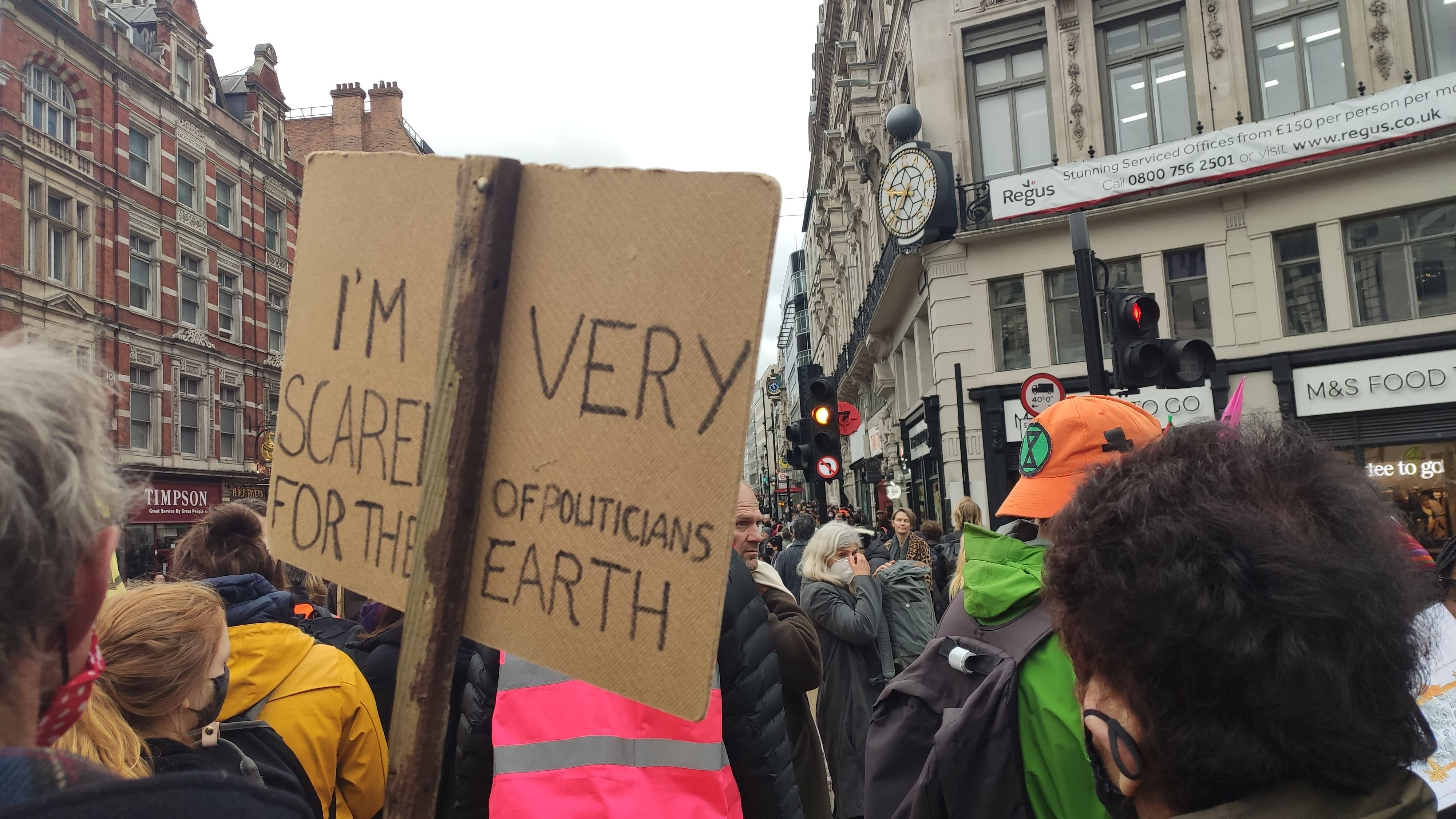
Joanna Waddy: So, what does age have to do with it?
"As you get older there's an urgency to try and leave a better legacy for the younger generations."
Friends of the Earth Richmond and Twickenham coordinator Joanna Waddy, 67, also experiences climate anxiety, though this has improved since climate became a prominent global issue.
A semi-retired payroll and pensions consultant who joined Friends of the Earth four decades ago, Waddy called COP26 a mixed outcome.
Unlike Korte, seeing increased coverage of the environment made her slightly less anxious, though she would’ve liked a global agreement to immediately drop fossil fuels.
Waddy said: "But clearly it wasn’t gonna happen, was it?"
While a below-average 41 percent of Waddy’s 50–69 age group told the ONS they were very or somewhat anxious, this rose to 49 percent among the 70 plus – higher than for any other age cohort.
Watch Joanna Waddy discuss the factors behind different generations' feelings of climate anxiety.
Though surprised by this, Waddy said: "As you get older there's an urgency to try and leave a better legacy for the younger generations.
"But we've clearly had a part to play in building up the problem."
Those aged 70+ were most likely to say they'd felt anxious. Question and data: Office for National Statistics. Contains public sector information licensed under the Open Government Licence v3.0.
Question and data: Office for National Statistics. Contains public sector information licensed under the Open Government Licence v3.0.
Pauline Castres: Disability and climate anxiety
"Disabled people are fighting for their survival every day, and this is even more true, you know, during the pandemic."
Disabled people also suffer disproportionately from climate anxiety, with 53 percent saying they experienced this in October’s ONS survey, compared with 39 percent of non-disabled people.
Responding to this, disabled climate activist Pauline Castres, 32, said: "Every day we have to think, how do we fit? Can I go to this restaurant? Can I go to this place? Is it safe for me to do X or Y?
"We rely on the built environment, and the built environment will be destroyed by climate change in the event of a flood, fire or tornado."
The built environment is the world humans have constructed around them – from the lifts wheelchair users need to get upstairs to the public benches people with chronic fatigue use to rest.
Despite the clear anxiety gap, no such difference existed regarding worry over climate change’s consequences, with 75 percent of both the disabled and non-disabled communities experiencing this.
Castres, who has worked in disability rights, climate and health for 10 years, said: "Anxiety is a much more survival-related term for me.
"Disabled people are fighting for their survival every day, and this is even more true, you know, during the pandemic.
"How are you gonna survive in an environment where it’s emergency mode all the time, where your environment might change at any point?"
Data: Office for National Statistics. Contains public sector information licensed under the Open Government Licence v3.0.
Inclusion and accessibility
"Disabled people are constantly told to just stay home."
Despite the additional impact of climate change on disabled people, not enough is being done to address their needs, according to Castres.
The French activist said: "Right now, a lot of climate activists see disabled people as being in the way.
"Because sometimes we do criticise measures like, you know, when people start saying zero cars or zero plastic straws, we start saying, 'Well, actually, there needs to be some nuance here.'"
Cars give many disabled people the autonomy and independence to perform tasks like attending job interviews where public transport is not accessible, Castres noted.
She asked: "And if you’re punished for that, then what do you do?
"Disabled people are constantly told to just stay home."
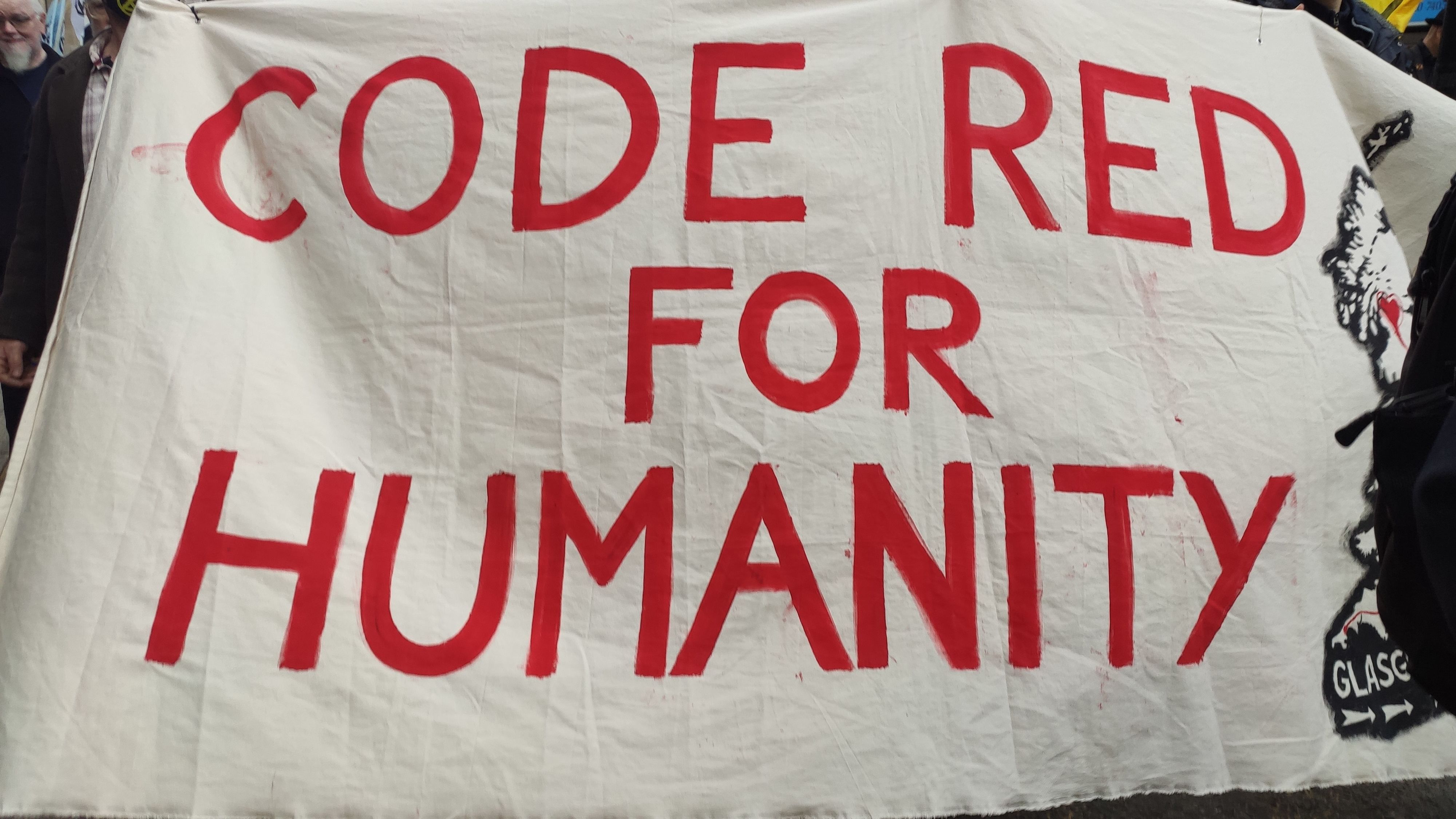
Climate change may be even worse than code red for disabled people.
Climate change may be even worse than code red for disabled people.
What's more, popular styles of protest like climate strikes are commonly inaccessible.
The risk of arrest or violence is concerning for those with mobility issues, Castres said.
She called for accessibility at in-person strikes to be given more thought and for online alternatives to be provided.
International environmental efforts often also give disabled people little space.
The cornerstone 2015 Paris Agreement on climate change and COP26’s Glasgow Climate Pact refer to disability just one time each.
Disability was sidelined at Paris, according to Castres, who compared this with the prominence afforded to gender.
She said: "There is always something that, you know, needs to be dealt with first and disability is at the bottom."
On the second day of COP26, Israeli energy minister Karine Elharrar, who uses a wheelchair, could not enter the summit. This was fixed for the next day.
Listen to Pauline Castres' extended analysis of accessibility at COP26.
Castres said: "For disabled people, it didn’t come as a shock, just because this is the norm for us.
"Most venues are inaccessible."
Representation was also a concern when Castres attended a disability-related session at COP26.
She said: "Someone asked the people in the room, 'Can you raise your hand if you’re disabled?' and only two people raised their hand.
"So that tells you a lot."
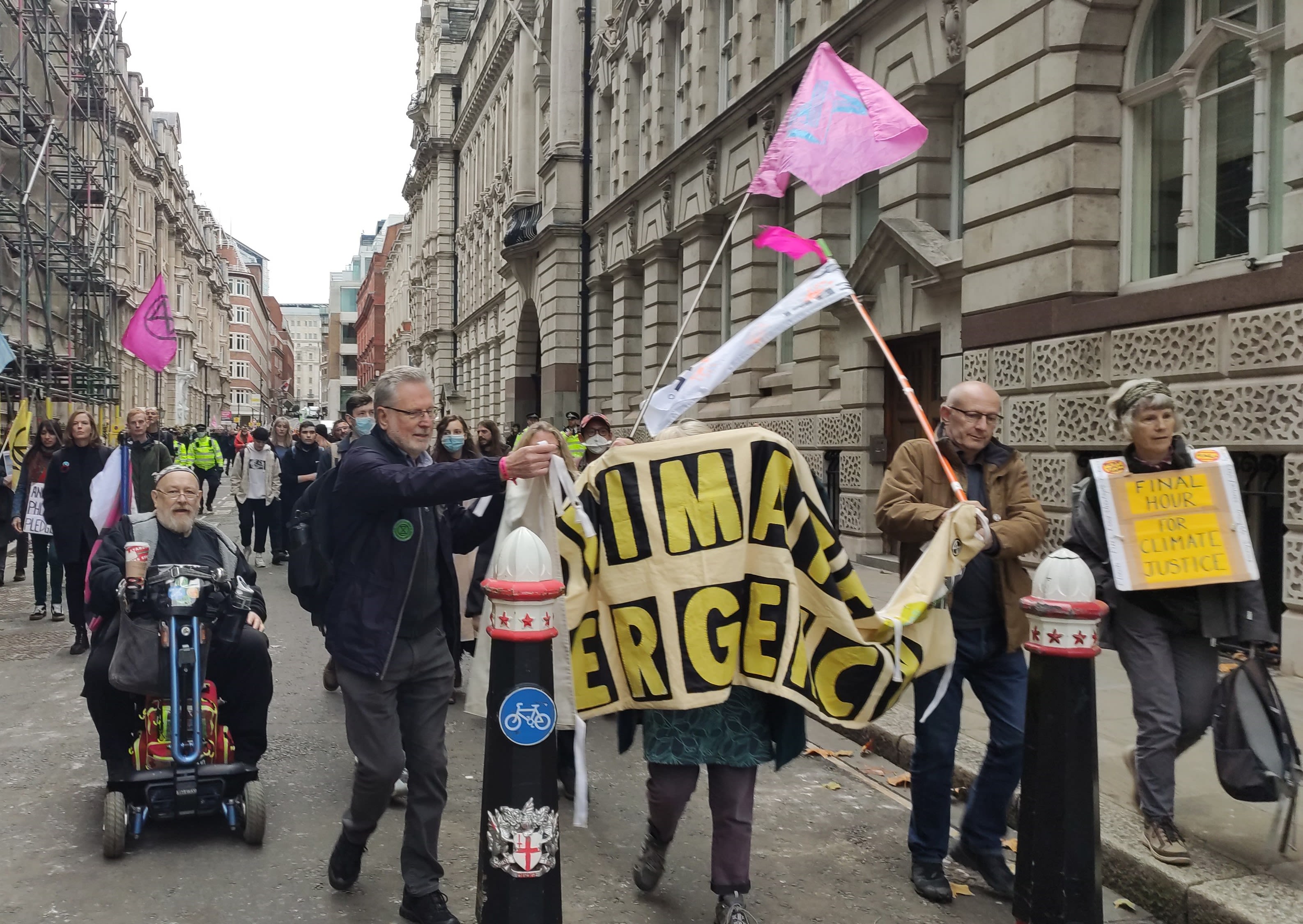
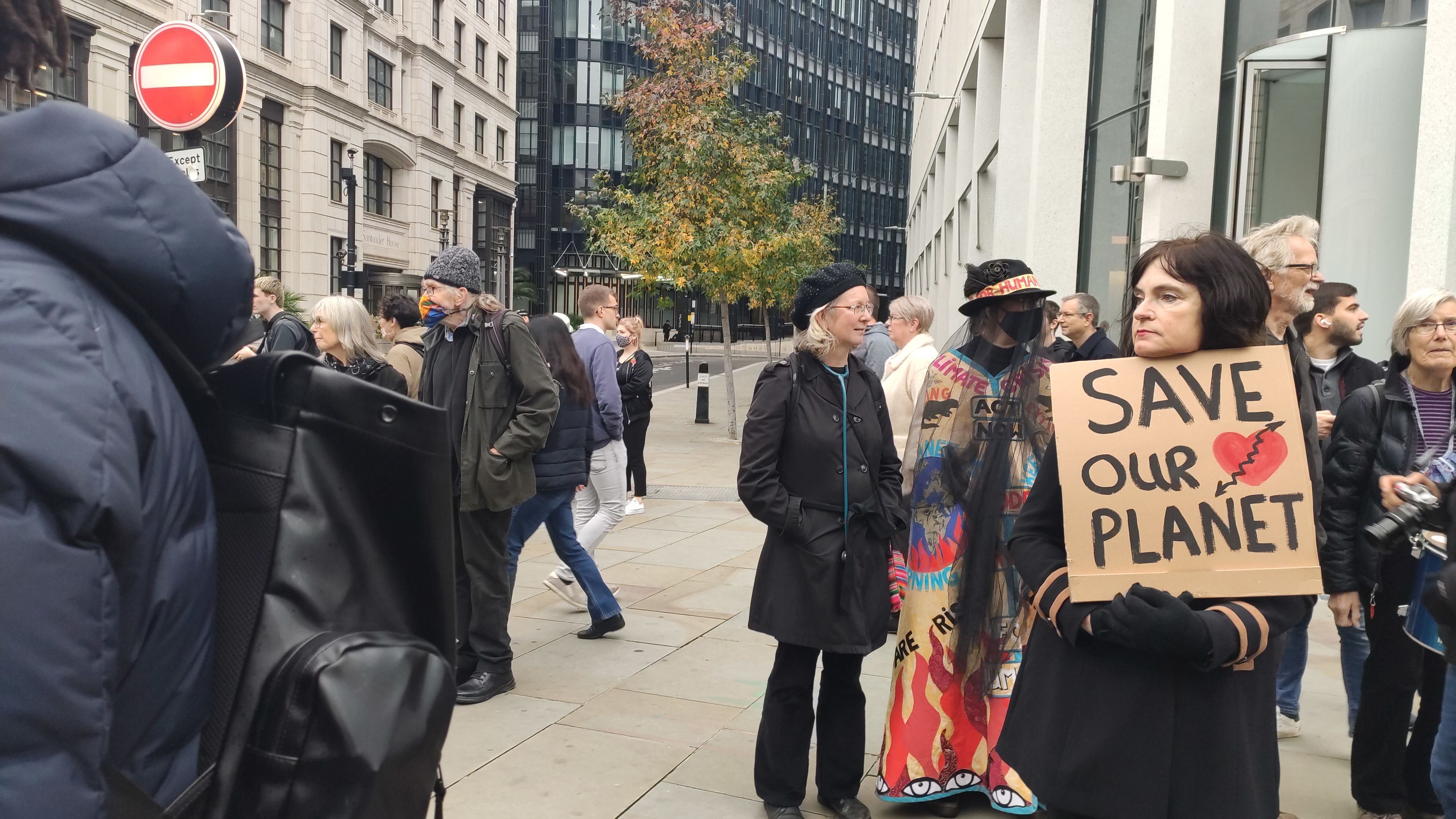
Credits
Data: Office for National Statistics. Contains public sector information licensed under the Open Government Licence v3.0.
Photos, videos and audio: Nick McAlpin (author)